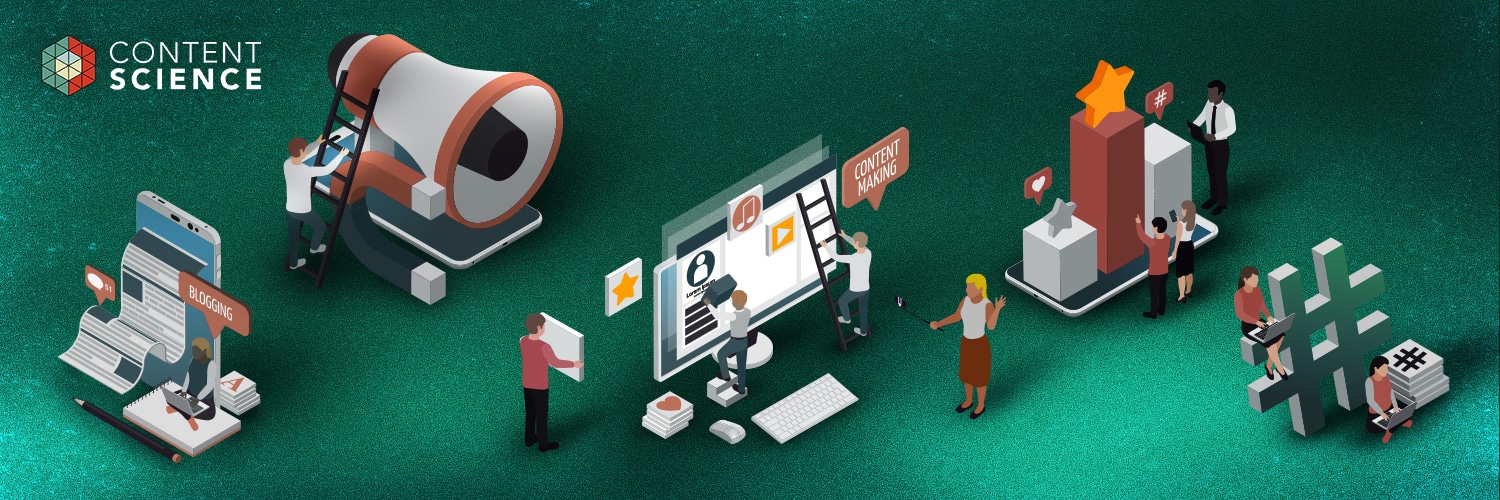
If you have ever read a helpful buying guide before making a purchase, tuned into a podcast sponsored by a brand, or downloaded a free ebook that answered your business questions, you’ve experienced content marketing in action.
But what exactly is content marketing? And why has it become such a powerful driver of business growth? This article answers those questions and more.
Defining Content Marketing
I find the definition of content marketing offered by Content Marketing Institute is quite useful.
Content marketing is creating and distributing valuable, relevant, and consistent content to attract and retain a clearly defined audience—and, ultimately, to drive profitable customer action.
At its core, content marketing is about earning attention rather than simply buying it. Instead of pushing ads, businesses create content that attracts people by informing, educating, or entertaining them. This builds trust and guides them through their decision-making journey.
As I emphasize in all editions of The Content Advantage, content marketing isn’t just about creating lots of content assets. It’s about aligning content with business goals, customer needs, and competitive differentiation. In other words, effective content marketing requires both strategy and execution.
Why Content Marketing Matters
When done well, content marketing delivers a wide range of benefits:
- Grow an audience: Attract people who are most likely to become customers.
- Build trust: Position your company as a trusted advisor and earn permission to communicate more.
- Engage and retain: Deepen customer loyalty and affinity.
- Reduce ad spend: Minimize reliance on paid advertising.
- Drive sales: Generate qualified leads and accelerate buying decisions.
- Strengthen the brand: Bring your values, personality, and expertise to life.
And beyond immediate marketing goals, content can also generate insights about customers for planning marketing or products; serve as a monetizable asset; and increase the long-term value of intangible assets like brand reputation and data. That last benefit certainly came in handy for Mailchimp’s $12 billion sale to Intuit.
Let’s take a closer look at some examples.
4 Examples of Content Marketing in Action
Content marketing takes many forms depending on the audience and business objectives.
1. The Home Depot: DIY Guides at Scale
The world’s largest home improvement retailer started small many years ago—with hardcover books—and evolved into an extensive library of DIY project guides, buying guides, workshops, and trend articles.
By optimizing this content for search, improving quality, and tying it closely to the customer journey, The Home Depot saw:
- A 500% increase in organic search visits in one year.
- A 753% increase in attributed revenue from content.
This case shows how evergreen, utility-driven content can directly fuel both traffic and sales.
2. Mailchimp: From Sponsor to Media Creator
Mailchimp began by sponsoring podcasts like Serial in 2014. By 2019, it launched Mailchimp Presents, its own streaming platform offering podcasts, video series, and films for small business audiences.
The result? Over 1 million downloads in the first four months. Mailchimp’s investment demonstrates how brands can evolve from advertisers to full-fledged media creators, building lasting affinity along the way.
3. FootSmart: The Power of Niche Content
FootSmart (now The Walking Company) doubled down on highly specific topics around foot health. By addressing gaps left by large health websites, they achieved a 76% increase in organic traffic within months and a 36% increase in weekly sales within a year.
This highlights the power of niche authority—going deep on content topics competitors overlook.
4. The Local Dental Office: Consistency Pays Off
Not all success stories involve large budgets. One dental practice in New York consistently posted answers to common patient questions for years. The result was steady growth in visibility and trust, proving that simple, consistent content effort can be effective.
The Shift to Strategic and Scalable Content Marketing
In the early days of the web and social media, many organizations treated content marketing as ad hoc—churning out blogs or social posts without a unifying strategy or appropriate operations support. The result was duplication, inconsistent messaging, low content supply, and limited impact.
Modern content marketing, however, is more about:
- Aligning with business goals and opportunities for differentiation.
- Defining customer journeys, especially the buying journeys.
- Mapping content to each stage of those journeys.
- Establishing content operations such as production calendars, workflows, and content management systems.
- Analyzing content quality and content effectiveness through audits, measurement, and analysis—or what we call a system of content intelligence.
It’s time to move from the “old world” of fragmented content to the “new world” of strategic and scalable content marketing.
The Future: AI and Content Marketing
Looking ahead, one of the biggest forces shaping content marketing is artificial intelligence. AI is making it easier to generate content at scale, analyze customer behavior in real time, and personalize experiences down to the individual. Tools can now suggest topics, optimize headlines, and even repurpose assets across formats or channels.
But AI also raises challenges: the risk of low-quality, generic content (also known as AI slop) flooding the web, and the need for brands to maintain authenticity and trust. I predict the winners will be those who use AI strategically—as a force multiplier for creativity, research, and execution—while still grounding their content in human insight, empathy, and expertise.
Some practical examples include:
- Personalization at scale: AI-driven recommendation engines (like those used by Netflix or Spotify) are increasingly applied in marketing to tailor content suggestions for each customer.
- Predictive insights: Machine learning can forecast which topics will trend or which leads are most likely to convert, helping marketers plan smarter campaigns.
- Automated content creation: From product descriptions to video captions, AI can handle repetitive tasks, freeing human creators to focus on strategy and storytelling.
- Enhanced customer experiences: AI chatbots and voice assistants can deliver content in conversational formats, making information more accessible and engaging.
Rather than replacing marketers, AI is becoming a partner in content operations—helping brands deliver the right message, at the right time, in the right format. The future of content marketing will likely belong to organizations that can blend AI efficiency with human creativity to build trust and differentiation.
Bringing It All Together
Content marketing is not a passing trend—it’s a fundamental shift in how organizations communicate and grow. Whether you’re a Fortune 500 retailer, a growing SaaS platform, or a local service provider, content marketing offers a path to attract, engage, and retain the right audiences in ways that advertising alone cannot.
The most successful brands don’t simply publish content. They treat content as a strategic asset—an engine that powers customer relationships, insights, and growth.
As Ben Quigley, a senior director at The Home Depot, notes in my book The Content Advantage:
Content is critical to an impactful experience, so a simple content vision can help all the teams involved stay aligned during the complexity of execution.
That’s the true advantage of content marketing: When insight meets execution, content becomes more than marketing. It becomes a driver of business transformation.
Events, Resources, + More
New Data: Content Ops + AI
Get the latest report from the world's largest study of content operations. Benchmarks, success factors, commentary, + more!
The Ultimate Guide to End-to-End Content
Discover why + how an end-to-end approach is critical in the age of AI with this comprehensive white paper.
The Content Advantage Book
The much-anticipated third edition of the highly rated book by Colleen Jones is available at book retailers worldwide. Learn more!
20 Signs of a Content Problem in a High-Stakes Initiative
Use this white paper to diagnose the problem so you can achieve the right solution faster.



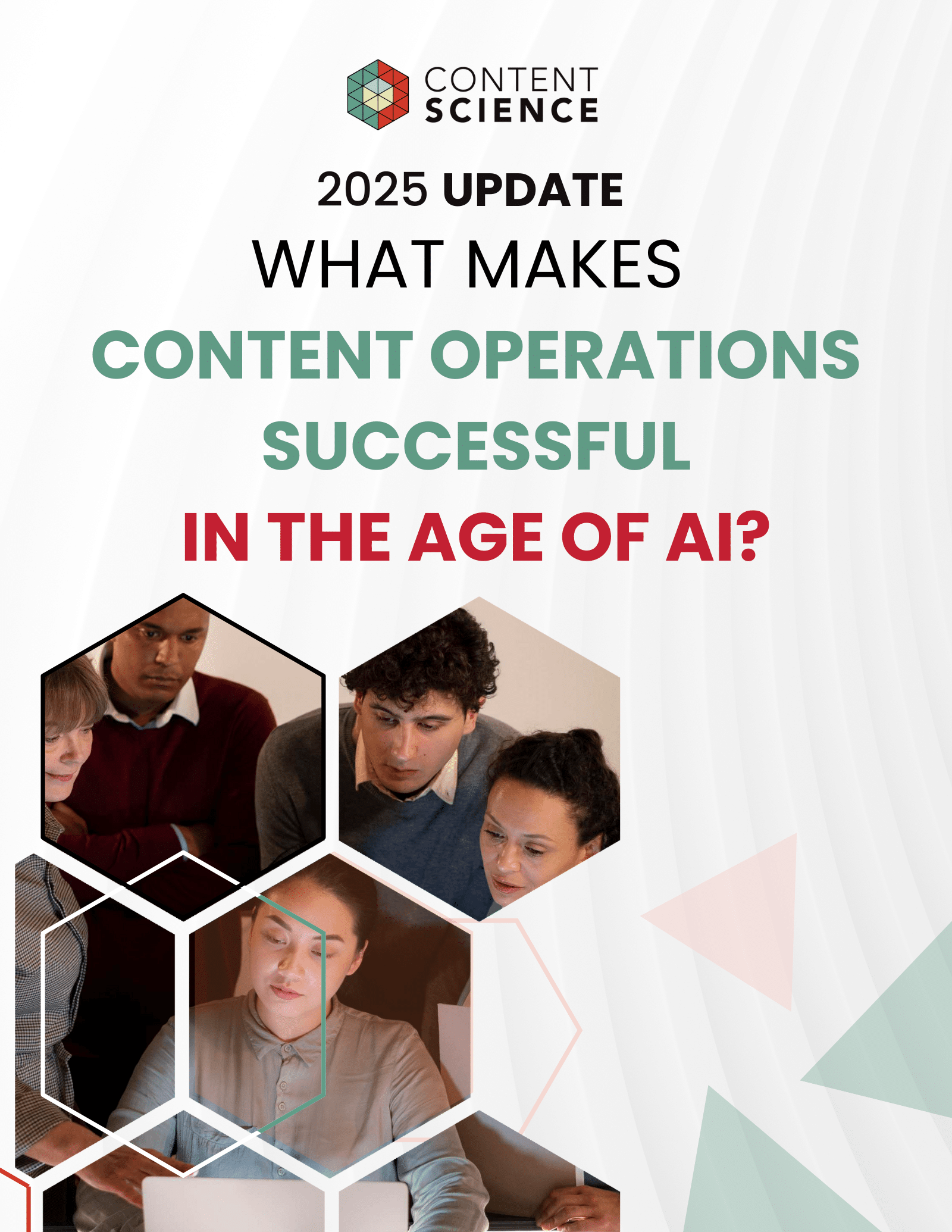
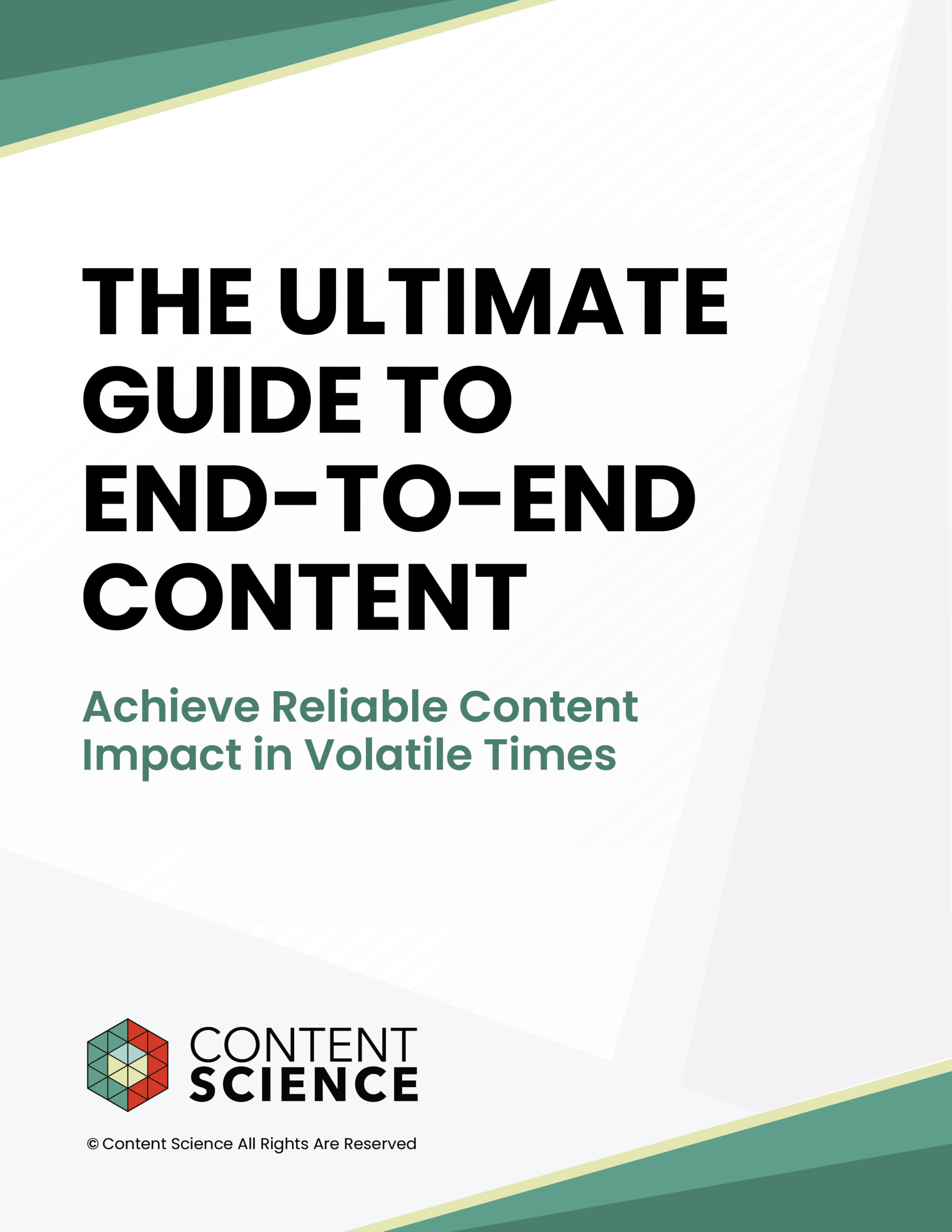
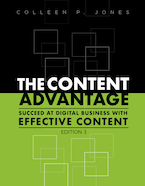
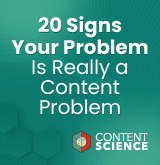
Comments
We invite you to share your perspective in a constructive way. To comment, please sign in or register. Our moderating team will review all comments and may edit them for clarity. Our team also may delete comments that are off-topic or disrespectful. All postings become the property of
Content Science Review.